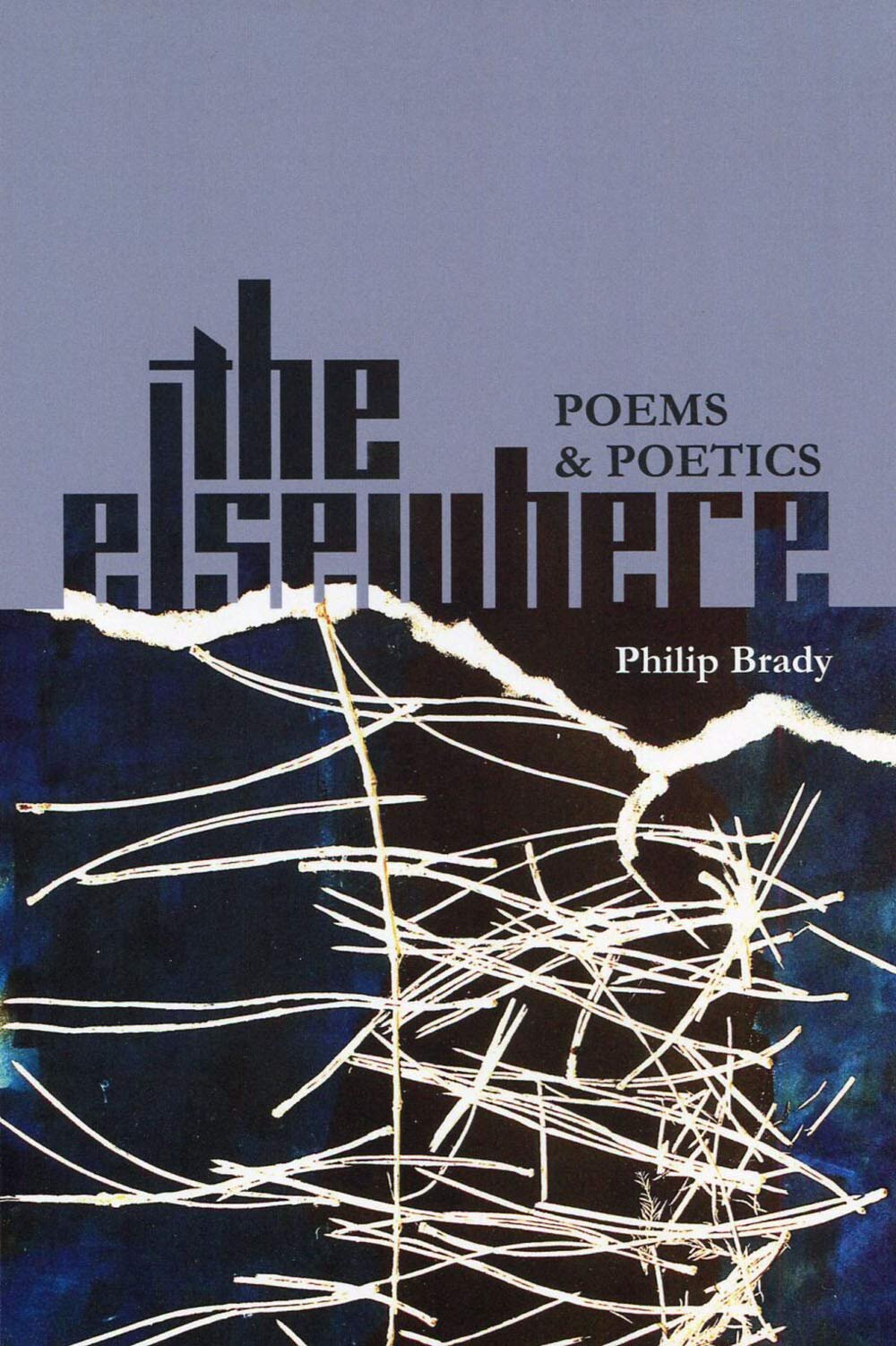The Elsewhere
The Elsewhere, by Phillip Brady, Broadstone Books, $21.95
Neither now nor when,/ consequence-bereft, uncircumscribed/ by past and future cones, the infinite/ fraction between synapses and stars.
There are so many different kinds of poets in the world. This seems like a rather obvious statement, but it is also something we often forget. There are poets of different schools and sensibilities, of different educations and obsessions. A book of collected or selected poems can be a revealing omnibus, charting a poet’s path, perhaps from its earliest stages. Such a book can be quite gripping if it is curated well, following an artist through the myriad joys and struggles of their life while also reaching into the life of a reader in some way. The Elsewhere by Philip Brady is a career-spanning book of selected poems and essays written in a unique voice.
I’ll start with the essays, since that is how Brady starts his book. In these essays, Brady discusses his ideas on poetics, his own poetry, the life of a writer, and his family, among other topics. The opening essay is about the bardic tradition and the importance of embracing poetry as an oral artform, themes he revisits throughout the book. While I didn’t agree with everything in this essay, he made some effective arguments and definitely inspired me to reread some of my favorite poems in a new way. Another essay largely takes place in an Irish pub and included one of my favorite scenes in the whole book, two poets mapping out the history of American poetry in a dirty bar. There are also essays about family, perhaps most poignant when Brady touches upon issues with his father and how he has explored those issues in his poetry.
As I mentioned above, there is a unique voice at play in the poems. Brady sometimes uses subtle rhymes and slant rhymes while discussing the seedier sides of life. In this mix of the classical and the contemporary, I was often reminded of Anglo-American poet Thom Gunn, though Brady has his own non-derivative style. For example, “this is a man who left the Peace Corps/ after two weeks because he was heart sore/ for a woman he’d just jilted. Needless to say,/ she jilted him right back for Hare Krishna.” And another, “what if what the woman told Freud was true—/ the claws, the monstrous pricks, belonged to/ living men?” In The Elsewhere, Brady does not shy away from sex or violence.
Another technique Brady employs in his work is to superimpose. This might mean that a landscape is overlayed on another landscape, another time, or even a person. Or it could mean that a person is overlayed on another person, another time, or a strange landscape. A humorous example of this is in a later poem when the ancient Greek poet Homer appears at a New York City strip club. This technique is also used to create sobering effects such as, “her wail/ rings here from thirty years ago” and “frost, or just a way/ of feeling cold could grip three/ generations.” In the poem “Siena” Brady overlays a child upon the Italian town she’s named after. Brady links so much together in his work; times, landscapes, and people, often in unexpected ways.
There were moments when I found Brady’s voice difficult to connect with; however, this certainly had nothing to do with his abilities as a writer. Surprisingly, I actually felt most connected to these poems when they themselves seemed to drift to other climes. In “Hunger’s Painting” the reader explores four different scenes simultaneously: the painter painting, the poet observing the painting, the poet obtaining the painting, and the scene depicted in the painting. This felt a bit like reading the eminent psychologist Julian Jaynes and his ideas on consciousness. Namely, how rare it is that we are truly engaged in our surroundings as our minds move between the present, the future, and the past. The Elsewhere takes you on its own special journey from Homer to anti-colonial activist Roger Casement to Brady’s childhood in Queens and perhaps to the bards of a future time.
Benjamin Schmitt
An author of three books, most recently Soundtrack to a Fleeting Masculinity, Benjamin’s poems have appeared or are forthcoming in Sojourners, Antioch Review, The Good Men Project, Hobart, Columbia Review,and elsewhere. A co-founder of Pacifica Writers’ Workshop, he has also written articles for The Seattle Times and At The Inkwell. He lives in Seattle with his wife and children.


